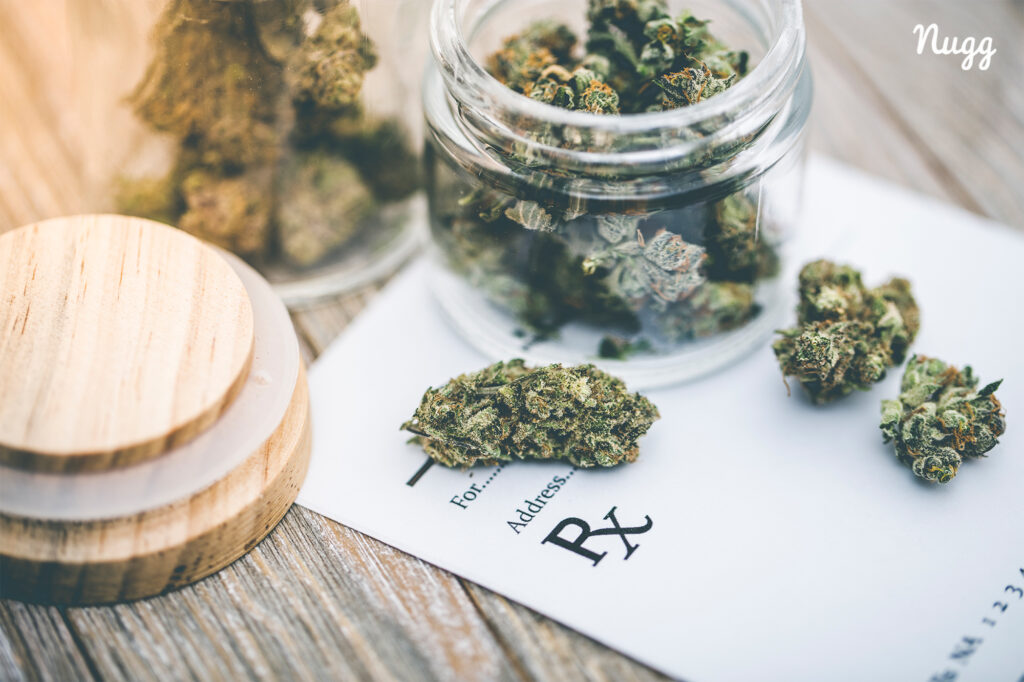
Jaundice is a condition where the skin, whites of the eyes, and mucus membranes turn yellow. This coloring is caused by bilirubin, a yellow-orange bile pigment produced in the liver when it breaks down old red blood cells. When the liver cannot keep up, it produces excess bilirubin, which causes progressive discoloration.
Jaundice, also called icterus or hyperbilirubinemia, comes from the French word “jaune,” meaning yellow. Doctors have discussed Jaundice for over 2,500 years, but it wasn’t until the 20th century that they identified bilirubin as the cause, and jaundice was determined to be a sign of a liver disorder.
Jaundice affects up to 80% of newborn babies and is problematic in only 1% of these cases. It is not very common in adults and doesn’t usually require treatment, although it can be a sign of something more severe. In 2022, due to new evidence, the clinical guidelines for treating jaundice in infants were updated, and among other changes, the use of phototherapy was increased.
What Causes Jaundice?
The underlying cause of jaundice is related to the body’s production of bilirubin and can happen at any stage.
Unconjugated jaundice happens before bilirubin is produced and is caused by:
- Large blood clots (hematomas) being reabsorbed
- A type of anemia where red blood cells break down unusually fast
During bilirubin production, jaundice is caused by:
- Viruses, especially Hepatitis A and long-term Hepatitis B and C
- Alcohol
- Autoimmune disorders
- Genetic defects affecting your metabolism
- Certain medicines, including acetaminophen toxicity, oral contraceptives, and anabolic steroids
Obstructive jaundice happens after bilirubin is produced and is caused by blocked bile ducts stemming from:
- Gallstones
- Gallbladder inflammation
- Gallbladder cancer
- Pancreatic tumor
Signs & Symptoms of Jaundice
People experiencing jaundice may have one or more of the following symptoms:
- Fever
- Chills
- Abdominal pain
- Other flu-like symptoms
- Yellowish change in skin color
- Dark urine
- Pale stool
- Weight loss
While most of these symptoms are common when jaundice is caused by infection, weight loss, pruritus, and abdominal pain are often present when other factors cause jaundice.
Some conditions may increase the risk of jaundice in people with liver disease:
- Chronic hepatitis
- Chronic liver inflammation
- Pyoderma gangrenosum, a type of skin disease
- Acute Hepatitis A, B, or C
- Inflammation or pain in multiple joints
Treatment, if required, typically focuses on alleviating the symptoms of jaundice, like itching. Kernicterus, a type of brain damage caused by too much bilirubin, can occur when severe jaundice is left untreated, but it typically only affects newborns and is very rare in adults.
Can Cannabis Help Alleviate Symptoms of Jaundice?

Very few studies have investigated cannabis for jaundice. This could be due to the fact that most adult cases of jaundice go untreated, and cannabis would not be a top choice as a safe treatment for newborns. One study produced inconclusive results that generated more questions:
- In 2014, in a rare study related to jaundice, researchers gave an oral cannabis extract to rats and observed an association with increased bilirubin levels but no otherwise adverse effects. Their results showed that cannabis could potentially influence liver function, but they could not determine whether it was wholly positive or negative.
Cannabis may have promise as a treatment for a common side effect of jaundice:
- In a 2020 review, experts reported clinical evidence that cannabis may be able to relieve pruritus caused by certain conditions like psoriasis, eczema, and dermatitis. They noted that both oral and topical applications showed the most promise for safety and efficacy, although further testing is warranted to determine the best practices for both.
Regarding conditions that sometimes lead to jaundice, there is not much research into cannabis and gallbladder health, and there are inconclusive results for cannabis and Hepatitis. However, a few other conditions have been studied.
- In 2017, researchers analyzed the livers of 42 healthy, long-term cannabis smokers and found no evidence of a negative impact on their liver function. This small study with no control group indicates the need for more extensive clinical studies into the short- and long-term effects of cannabis usage on people with and without liver disorders.
- In a 2021 review of the microbial properties of cannabis, researchers reported inconclusive results, finding that cannabis may have the potential to compromise the immune system in some cases and protect it in others. However, in molecular models, cannabis showed significant antimicrobial and antibacterial activity. Additionally, CBD, THC, CBG, CBDA, and other cannabinoids have been found to exhibit antibacterial effects, although this must be further corroborated in human studies.
Overall, there is no evidence that cannabis can alleviate jaundice, which is not surprising considering the condition does not usually warrant treatment. It may have the ability to impact the liver function of people with liver disease, but further testing must be done to find out whether this could affect the liver enough to cause jaundice.
In some cases, cannabis does not appear to cause adverse effects or worsen certain conditions that lead to jaundice; it may also be able to increase quality of life, especially with chronic jaundice. In other cases, the data generated even more questions. Most of these results have taken place in molecular and animal studies. They should be taken only to indicate the promise that cannabinoids may hold once more in-depth studies are complete.
You should consult a doctor before using cannabis for a medical condition or its symptoms, including jaundice. There may be side effects when cannabis is combined with certain medications, and if your jaundice is caused by liver disease, taking risks may not be wise.
If you would like to use cannabis when you have jaundice, oral and topical medical cannabis products appear to be the most useful in cases of itchiness. CBD oil, hemp seed oil, and other cannabis-containing non-psychoactive cannabinoids may be best since they typically cause fewer psychoactive and adverse effects. Look for cannabinoids like CBD, CBDA, CBG, and THCA, and if using THC, remember to start with a low dose and wait to see how it affects you before using more.
Legality and Doctor’s Recommendation
To determine if your state considers jaundice a qualifying condition for medical cannabis, check out our Laws & Regulations section for the medical cannabis rules for your state.
If your state recognizes jaundice or its symptoms as a qualifying medical condition, you can seek a doctor’s recommendation to get your medical cannabis card in your state.
How NuggMD Can Help

NuggMD is the nation's leading medical cannabis technology platform, serving patients in over half of the United States. We’ve connected over 1,300,000 patients with their new medical cannabis doctors face-to-face via our state-of-the-art telemedicine platform.
We believe that every human has the right to explore the benefits of medical cannabis and are fully committed to helping each patient explore all their options in their journey to wellness. For further information on whether you qualify for medical cannabis, select your state.
References
- Herta T, Beuers U. A historical review of jaundice: May the golden oriole live forever. Clinical Liver Disease. 2022;20(S1):45-56. doi:https://doi.org/10.1002/cld.1267
- Kemper AR, Newman TB, Slaughter JL, et al. Clinical Practice Guideline Revision: Management of Hyperbilirubinemia in the Newborn Infant 35 or More Weeks of Gestation. Pediatrics. 2022;150(3). doi:https://doi.org/10.1542/peds.2022-058859
- Waser M, Kleihues P, Frick P. Kernicterus in an adult. Annals of Neurology. 1986;19(6):595-598. doi:https://doi.org/10.1002/ana.410190614
- Okwari OO, Emerole C .G, Dasofunjo K, Alagwu EA, Olatunji TL, Osim EE. Impact of repeated administration of Cannabis sativa on some biochemical parameters in albino rats. IOSR Journal of Pharmacy and Biological Sciences. 2014;9(1):51-57. doi:https://doi.org/10.9790/3008-09125157
- Avila C, Massick S, Kaffenberger BH, Kwatra SG, Bechtel M. Cannabinoids for the treatment of chronic pruritus: A review. Journal of the American Academy of Dermatology. 2020;82(5):1205-1212. doi:https://doi.org/10.1016/j.jaad.2020.01.036
- Bonnet U, Canbay A, Specka M, Scherbaum N. Long-Term Heavy Recreational Cannabis Use and Serum Delta-9-Tetrahydrocannabinol Levels are not Associated with an Impaired Liver Function in Cannabis Dependents. Journal of Psychoactive Drugs. 2018;50(4):355-360. doi:https://doi.org/10.1080/02791072.2018.1482031
- Schofs L, Sparo MD, Sánchez Bruni SF. The antimicrobial effect behind Cannabis sativa. Pharmacology Research & Perspectives. 2021;9(2). doi:https://doi.org/10.1002/prp2.761
- Scott C, Neira Agonh D, Lehmann C. Antibacterial Effects of Phytocannabinoids. Life. 2022;12(9):1394. doi:https://doi.org/10.3390/life12091394
The information in this article and any included images or charts are for educational purposes only. This information is neither a substitute for, nor does it replace, professional legal advice or medical advice, diagnosis, or treatment. If you have any concerns or questions about laws, regulations, or your health, you should always consult with an attorney, physician or other licensed professional.

